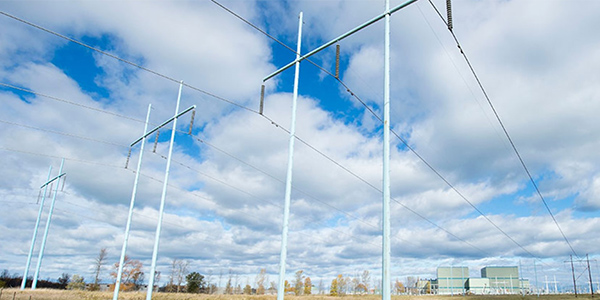By Amanda Durish Cook
The future of MISO’s second-ever competitively bid transmission project could be in jeopardy after passage of a Texas law that grants incumbent utilities the right of first refusal (ROFR) to build projects within the state.
MISO last year selected NextEra Energy Transmission Midwest to construct the Hartburg-Sabine Junction 500-kV project in East Texas. NextEra proposed to spend $115 million to build the project, which would consist of a new 23-mile single-circuit 500-kV line, four 230-kV lines and a new substation. The company sought a $95 million transmission revenue requirement (TRR), and its winning proposal scored 97 out of a possible 100 points in the bidding process. (See NextEra Wins Bid to Build MISO’s 2nd Competitive Project.)
But the new Texas law casts doubt on NextEra’s ability to proceed with the highly anticipated market efficiency project. Gov. Greg Abbott signed the ROFR bill into law May 17 after the state House of Representatives voted 139-5 to pass it and it cleared the Senate 31-0.
Referring to ERCOT’s historical exemption from FERC oversight, Rep. Dade Phelan (R), a sponsor of the bill, told legislators in May that the bill will “ensure the Public Utility Commission, and not the federal government, will have jurisdiction over Texas transmission rates.” (See Texas ROFR Bill Passes, Awaits Governor’s Signature.)
But opponents contend the law will undercut competition by prohibiting anyone but incumbent utilities to build Texas transmission and prevent the PUC from licensing new entrants to the transmission market.
MISO says it is reviewing the developments but still expects construction will proceed on the congestion-relieving line.
“MISO is committed to delivering the benefits of the Hartburg-Sabine Junction 500-kV transmission project in East Texas in accordance with its regional transmission plan and in compliance with applicable laws and regulations,” Director of Strategic Communications Julie Munsell told RTO Insider. “MISO is reviewing the applicable Tariff provisions and will determine the appropriate steps.”
The RTO emphasized that its studies show the project will “alleviate longstanding energy congestion issues and import limitations, allowing lower-cost generation to serve customers in the area.”
MISO representatives declined a request for further interview on the matter.
In 2016, MISO respected Minnesota’s existing ROFR when it declined to open the $80.9 million Huntley-Wilmarth 345-kV line project to competitive bidding. At the time, MISO’s legal team said the RTO must respect state and local laws. (See Courts Uphold Minn. ROFR, MISO Cost Allocation.)
Big, Swift Change
In testimony in April, NextEra Energy Transmission President Aundrea Williams said that if the Texas ROFR legislation passed, it would “without question” force customers in East Texas to “pay more for this key transmission project and lose out” on benefits because of the lack of competition. Williams also said the MISO competitive process found that NextEra’s proposal would save customers tens of millions of dollars when compared to other proposals. She cautioned that the bill would have “real detrimental” consequences for Hartburg-Sabine.
“This bill is a big change to Texas transmission markets, and a swift change. A change so big it that it will have an impact on every single Texan and so fast that there is insufficient time to have an opportunity to fully evaluate all the possible negative implications that will ripple across the state. The bill will impair a longstanding market fundamental that underpins the overall structure of the Texas electricity market that has served Texans well for many years,” Williams said.
Incumbent transmission owner Entergy was one of 12 developers to bid on the project under its EasTex TransCo subsidiary. While MISO does not release specific details about losing proposals in competitive solicitations, general data released by the RTO regarding Hartburg-Sabine showed submitted bids ranged from $95.4 million to $133.9 million, while TRRs ranged from $88.2 million to $166.3 million.
Entergy did not respond to an inquiry about its proposal or its intentions regarding the project in light of the ROFR law. NextEra also declined to comment for this story.
In March, FERC granted NextEra an abandoned plant incentive, allowing the company to cover 100% of its investment if the Hartburg-Sabine project is canceled for reasons outside the company’s control. (See NextEra Gains Incentive for Hartburg-Sabine Project.)





